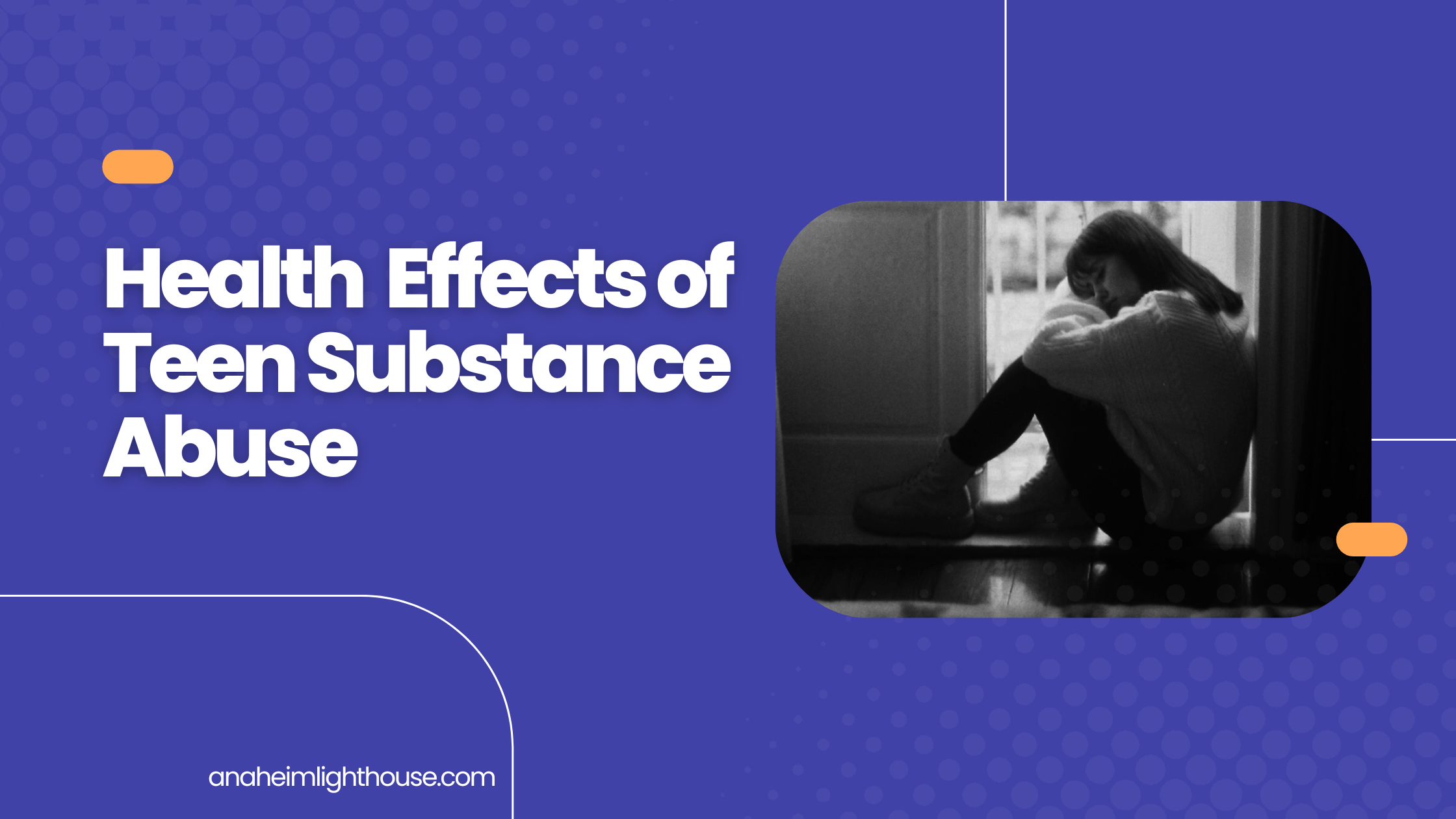Health Effects of Teen Substance Abuse
You may think that your teenager is too busy with homework and activities to be interested in drugs or alcohol, but the fact is, teen substance abuse is a very real problem. And for many families, the health effects of teen substance abuse can be devastating.
You might be wondering: What are the health effects of teen drug and alcohol abuse? And how can parents help their children stay substance-free?
If you’re concerned about your teenager’s behavior or suspect they’re using drugs, it’s important to be aware of the risks and understand the potential health effects.
In this post, we’ll explore the dangers of teenage substance abuse and offer tips for keeping your kids healthy and safe. Read on to learn more about the health effects of teen substance abuse and how to get help for your child.
Physical Health Effects of Teen Substance Abuse
The physical health effects of teen substance use disorders can be widespread and serious. Depending on the substance being abused, teens can experience a range of short- and long-term effects on their physical health.
For example, alcohol abuse can lead to liver damage, while drug abuse can damage the brain and other organs. In some cases, teen substance abuse can even lead to overdose and death.
It’s not unusual for teens to experience side effects and withdrawal symptoms that can be uncomfortable and even dangerous. These effects can include:
- Nausea and vomiting
- Headaches and dizziness
- Rapid heart rate
- Seizures
- High blood pressure
- Difficulty breathing
- Hallucinations
- Insomnia
Physical health problems caused by teen substance abuse often persist into adulthood, so teens need to get help as soon as possible.
Behavioral Health Effects of Teen Substance Abuse
In addition to the physical health effects of teen substance abuse, there are also behavioral effects. Teens who abuse drugs or alcohol are more likely to experience problems at school, with their friends, and at home.
Substance abuse can lead to absenteeism, poor grades, and conflicts with classmates and teachers. Teens who abuse drugs or alcohol are also more likely to get into trouble with the law.
If you’re worried about your teenager’s behavior, look for warning signs of teen drug abuse that may indicate a problem, such as:
- Withdrawing from friends and activities
- Isolating themselves in their room
- Skipping school or work
- Lying or being secretive
- Stealing
- Exhibiting aggressive, violent, or risky behavior like unprotected sex or driving under the influence that could lead to car accidents
Mental Health Effects of Teen Substance Abuse
In addition to the physical and behavioral effects of teen substance abuse, there are also mental health effects. Teens who abuse drugs or alcohol are at an increased risk for developing mental health disorders like depression and anxiety. It can also affect memory, learning, and mood.
Substance abuse can also worsen existing mental health problems. For example, teens with undiagnosed ADHD who self-medicate with drugs or alcohol are at an increased risk of developing an addiction. Teens who abuse substances are also more likely to attempt or commit suicide.
The existence of mental illness and substance abuse together is referred to as co-occurring disorders. And treating co-occurring disorders requires specialized care from a mental health professional.
Some mental health diseases that can co-occur with teen substance abuse include:
- Anxiety
- Depression
- PTSD or other trauma-related disorders
- Eating disorders
- Bipolar disorder
- ADHD
How to Keep Your Children Safe from Teen Substance Abuse
Many parents often blame themselves when their kids start using drugs or alcohol. But it’s important to remember that substance abuse is a complex disease that can have many causes.
There are, however, some things parents can do to help prevent their children from abusing drugs or alcohol. These include:
- Educate yourself about the risks of substance abuse and talk to your kids about the dangers.
- Encourage your children to be involved in positive activities like sports, clubs, and volunteering.
- Monitor your children’s behavior and be on the lookout for warning signs of drug or alcohol abuse.
- Set clear rules and consequences for drug use and stick to them.
- Create a supportive and open environment at home where your kids feel comfortable talking to you about difficult topics
If you suspect your child is abusing drugs or alcohol, don’t ignore the problem. Talk to your child about your concerns and get them help from a mental health professional if necessary.
Why Teenagers Abuse Drugs
Several factors can contribute to addiction. Perhaps the most common reason for teenage drug abuse is peer pressure. Teenagers are often pressured by their friends to try drugs, and they may feel like they need to fit in or be accepted.
Additionally, many teens turn to drugs as a way to cope with stress or pain, and they may not be aware of the risks involved. Being exposed in an environment where drug use is rampant also presents a higher risk for addiction.
Some of the most commonly abused drugs include alcohol, marijuana, and prescription medications. Each of these substances can be highly addictive, and they can lead to serious health problems.
It’s important for teenagers to be aware of the risks of drug abuse, and to seek help if they or someone they know is struggling with addiction.
Get Help for Teen Substance Abuse in California
Substance abuse in teens can result in negative effects including health problems, both short-term and long-term. If you’re worried that a teenage loved one may be abusing drugs or alcohol, it’s important to get professional addiction treatment as soon as possible.
Contact us today to learn more about our California teen substance abuse treatment program. We can help your teenager get on the path to recovery and lead a healthy, happy life.



